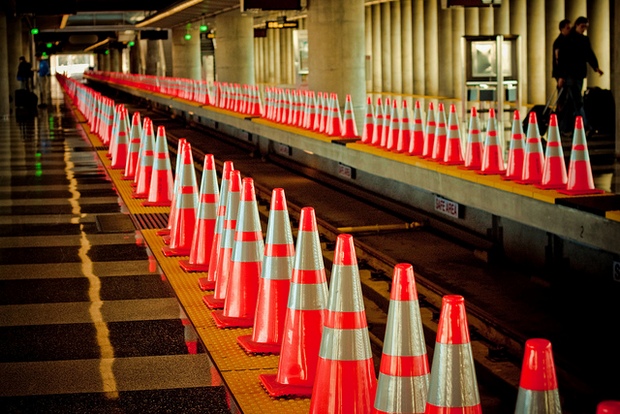Last week, BART blocked mobile phone services for several hours to disperse a demonstration they claimed was going to turn violent. Was it legal? The FCC is now asking. And free speech experts say it's uncharted territory that must be explored as mobile and digital communications technologies emerge.

On Thursday, August 11, Bay Area Rapid Transit (BART) officials shut down mobile phone service along the public transit network's tracks under murky circumstances in order to prevent a demonstration from taking place that day. The demonstration was called to protest the shooting death of a homeless and mentally ill man named Charles Blair Hill by BART police on July 3. Hill, 45, was allegedly drunk and wielding a knife inside the Civic Center station.
BART officials activated cell phone service throughout their underground tracks last year for "public safety" reasons, which could seem ironic now. The authority's decision to block wireless signals along much of their network appears to have been the first time in the United States that any agency disrupted mobile communications in order to prevent possible civil unrest. At the time this post was written, it was still unclear whether the public transportation system had obtained--or even formally seeked--permission from the mobile phone providers whose services they disrupted. For many observers, the shutdown had disturbing echos of the propensity of foreign dictators to disrupt mobile phone communications; the same week, massive riots were taking place in Great Britain that undoubtedly influenced BART's thinking.
Shortly after the shutdown, which lasted for several hours, BART produced an awkward video justifying their shutdown of mobile communication services.
[youtube HsKEvd6gH0A]
The unruly mob BART feared would descend onto the Civic Center tracks never appeared, and BART's actions came under fire from liberals, Bay Area commuters, and BART employees. The FCC has announced an investigation.
In a prepared state...
[Source: Fast Company]
No comments:
Post a Comment